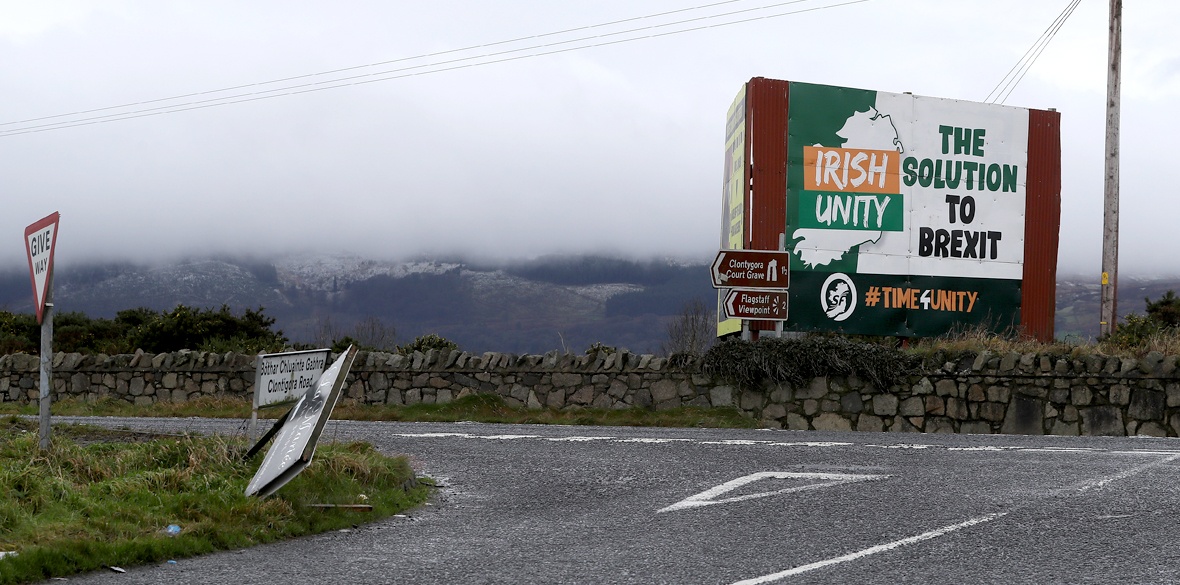This is the last article you can read this month
You can read more article this month
You can read more articles this month
Sorry your limit is up for this month
Reset on:
Please help support the Morning Star by subscribing here
THE recent contributions from Nick Wright, Joe Bowers and Adam Murray concerning the current stage of the demand for the national reunification of Ireland are very much to be welcomed.
While the people of Ireland will, of course, decide how and in what form this debate will be furthered, it is important that the British labour movement too understand what is involved — not least because of the need to combat the insensitive pro-Unionist stance adopted by Keir Starmer, which Wright commented on.
This is not merely an act of solidarity, but a question that is central to the struggle for democracy in Britain itself.
As Karl Marx pointed out, a nation that oppresses another cannot itself be free; and, as Starmer’s comments show, the struggle to uproot an imperialist world view from the consciousness of the working class is key to liberating that class from the neocapitalist ideology that Bowers and Murray alluded to.
This has practical consequences, as shown by the debates over Brexit.
For, just as there are two Englands — an imperialist one and a democratic one — so there are two forms of Brexit: one which reaches out to the delusions of empire and which wants to bring Britain back as a major imperialist force (a doomed mission, but a reactionary one nevertheless); and a democratic Brexit which puts the state at the service of the people, placing their needs and priorities first.
Equally, in Ireland, a national unity which doesn’t involve “the inalienable right of the Irish people to the unfettered control of Irish destinies” is at best only half the question.
While a substantial majority of the Irish people currently favour membership of the EU, breaking from that Union is an issue that must be placed on the agenda.
The alternative is that the pro-capitalist elements will determine the shape of the new Ireland.
It seems to me that Wright is wrong to assume that Bowers and Murray are lending themselves to those who want to find excuses against Irish unity. Rather, they are calling for a clear laying down of the context in which the struggle for unity should be placed and how that struggle will continue after any referendum.
This is not a new position. The Irish Marxist leader, James Connolly, pointed out before the Easter Rising (1916) that winning an eviction notice without a crown stamped on it was no advance at all. He demanded that the social and national struggles be inter-connected.
This has two practical consequences.
First, the fight against the EU (which has written neoliberalism into its very constitution) is a central part of the fight for a working-class democracy. We cannot build our country without the freedom to do so.
Second, while the British NHS is the least funded in Northern Ireland, it is still seen across the community as something to be fought for and defended. It would be suicide to leave that weapon to the imperialist interests who want to thwart Irish democracy.
And, of course, as Bowers and Murray point out, former Sinn Fein president Gerry Adams has trenchantly observed this point, and Sinn Fein is making such a comprehensive social healthcare system a central part of their demand for unity.
And this is the choice we have: leave it to the capitalist elements to determine the shape of a United Ireland, or lay down the basis for a working class alternative.
The Protestant section of the working class will not be easily won from their attachment to the old sectarianism, but the political struggles to come in the future in Ireland will be massively strengthened if the social demands Bowers and Murray refer to are placed at the centre of the debate on Irish unity.
For the British labour movement, there is an equally stark choice: you can observe from an on the fence neutrality the working out of the Irish question, or you can play a role in weakening British imperialism’s ability to interfere in our affairs.
That second choice is manifestly part also of putting a democratic Brexit on the agenda against the Tory illusions of imperial grandeur and the Blairite fervour to the part of the new European imperialism.
Solidarity with Ireland is very much in your interest too.
Eoin O Murchu, now retired, was for many years editor of the Irish communist newspaper Irish Socialist, a member of the party’s national political committee and its deputy national chairman.










